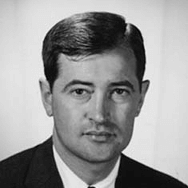Arheel's Uncle
Senior Reporter
UWBTS — Chapter 38: | Society of Independent Southern Historians
Add the site description here
...
No, the North was not fighting to free the slaves. Lincoln said so himself. He specifically stated that he was fighting to save the Union. What he neglected to add, however, was that he was fighting to save the Union for Northern financial and industrial interests! And what were some of these interests? The industrializing North, with her sectional majority, was rapidly gaining control of the Federal Government and wielding it to accomplish her political ambitions to centralize its power, and use her control of that power to accomplish her industrial ambitions for high protective tariffs, bounties for transcontinental railroads, and the creation of national banks to manage it all, all at the South’s expense, turning the Southern States into her agricultural colonies – of the sort that England had earlier created with her thirteen Colonies. With the election of Lincoln and the triumph of his strictly Northern sectional party, the Cotton States saw it all coming and got out from under the North’s control once and for all through State Secession.
So what was the War all about? Quite simply, it was the North’s war against the South’s secession. Secession is an Imperialist’s worst nightmare. When the thirteen Colonies rebelled against England’s economic exploitation by seceding from the Empire, England sent in the Redcoats. When the Southern States rebelled against Yankee economic exploitation by seceding from the Union, the Yankees sent in the Bluecoats.
With the secession of the Southern States, the North lost her largest source of tariff revenues, her source of cotton for her mills, a large portion of her markets for her manufactured goods, and control of the mouth of the Mississippi. (So the North propagandized, but Confederates were pledging to keep that key river open to steamboats engaged in international trade.) If the South were to be allowed to leave the Union and get out from under the control of the North and her sectional majorities, the North feared its economy might wither on the vine.
So the North provoked the South into firing the first shot, blockaded the Confederate coasts, and marched her armies across the South to the tune of the Puritanical and militantly intolerant “Battle Hymn of the Republic” – burning and pillaging and raping and killing – until she drove the Southern States back into the Union. Then – by the Reconstruction Acts that dis-franchised Southern intelligence and enfranchised Southern ignorance under the control of unscrupulous and predatory Northern carpetbaggers and demagogues propped up by Federal bayonets – the North passed Amendments that effectively gutted the Constitution of its federative nature, and put the Federal Government under her unlimited control. With the stumbling blocks of the South and the Constitution finally out of the way of her ambitions, the North then sent Sherman, Sheridan and Custer out to the Great Plains to tend to the Indians, who were in the way of her transcontinental railroads. But this doesn’t look very good on the pages of a school history book or in a National Park Service film presentation, so the North’s war of conquest must be cloaked in robes of morality and turned into a war of liberation. To the victor belong the spoils, and the “Official History Book” – written by “Court Historians” – is one of the spoils of war.
It should come as no surprise, then, that the South has been made the nation’s foil, the scapegoat, the traitor, the guilty one, fighting not to defend herself from invasion, conquest, and coerced political allegiance, but fighting to defend slavery. And it should come as no surprise that the North has been made the righteous one, the “good guys,” fighting not a war of imperialism and conquest, but fighting a noble war of liberation under the tragic benevolence of “Father Abraham.” But the truth is that when Abraham Lincoln got the war he wanted, he suspended the writ of habeas corpus, secured for himself dictatorial powers, and – with the collaboration of newly elected Republicans – implemented the very usurpation that the Founders had struggled to prevent.
...
Last edited:






